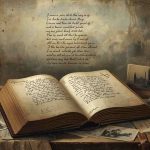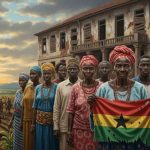Spider World is a gripping science fiction series by Colin Wilson that explores a future Earth ruled by giant, intelligent spiders. Through the journey of a young hero named Niall, the series dives into themes like survival, dominance, evolution, and the power of the human mind.
Each book unravels a deeper layer of resistance, awakening, and spiritual transformation in a world lost to fear.
The Desert (1988) | Spider World
Giant, sentient spiders took over Earth in a far-off post-apocalyptic future. Humans are now merely basic nations battling for staying alive not the dominant race.
A young man from one such tribe designated Niall is presented in the book. He starts to have fears about his world and the fear that rules it.

Following being exiled from his tribe, Niall finds remains of the ancient world and meets Father Tamm, an expert elderly man who is aware of the truth about the history of the Spider the Empire and Earth’s lost past. In order to help Niall fend off spiders, Tamm helps him wake up his unused psychic gifts.
This book sets up the reader for a more serious conflict as Niall discovers that humanity’s defeat is not permanent—there is still hope.
| Theme | Explanation |
| Evolution | Shows how life forms—including humans and spiders—have adapted in a radically changed world. |
| Dominance | Reflects how the spider species have overtaken humans as rulers of the Earth. |
| Survival | Focuses on humanity’s basic instinct to stay alive under extreme oppression. |
The Tower (1988) | Spider World
Niall’s excitement continues in The Tower, where he examines the center of the spider-dominated world.
He finds a high structure that resides the a spider’ main hive, a site of brutal control as well as academic study.
In addition to frightful creatures, Niall acquires horrific truths about the nature of power and control of mind in the Tower.
Additionally, he finds out that the Dark Ones are a powerful species of snakes that rule through spiritual force.
As Niall’s skills the future, he makes notice from humans all over the world, some of that also gained mental capacities in addition to the spiders. Niall survives the Tower at the end of the book, wiser and more decided to effect shift.
| Theme | Explanation |
| Mental Power vs. Physical Power | The novel shows how psychic strength can overcome brute force and biological dominance. |
| Control | The spiders’ rule represents oppressive control enforced through mental and social manipulation. |
| Rebellion | Niall’s growing defiance symbolizes the spark of human resistance against domination. |

The Fortress (1989) | Spider World
Niall, a psychic warrior and coated survivor, chooses to set up a castle, or fortress, where people may meet and learn how to keep off the spiders.
However, getting different and fearful tribes in is no simple feat. Internal dispute jeopardize the shaky alliances Niall builds, and lots of individuals have lost the will to fight.
In this time frame, new breeds of spiders with even more harmful capabilities appear as they keep on changing.
Niall needs to improve his management skills and mental skills. He teaches others to question the spiders’ natural order and fight telepathic rule.
The dream of reclaiming Earth appears realizable as human obstruction grows and the balance starts to change.
| Theme | Explanation |
| Human Potential | Suggests that with training and will, humans can surpass their limits. |
| Unity | Emphasizes the strength found in collective effort and common purpose. |
| Leadership | Focuses on the responsibility and vision required to guide a scattered people. |

The Delta (1987)
The Delta is often read as Book 4 in story order of the Spider world series, notwithstanding being published first. The focus of the telling shifts from your own survival to major conflict.
In the Delta locale, a huge and potentially dangerous swamp that disguises long-forgotten mysteries and possibly the cradle of the spider species, Niall leads his building group of educated humans.
He learns that the fight is not only against spiders but also against historical forces that affected evolution for hundreds of years after coming across new human and insectoid nations here.
The Delta is more than just a place of business; it is a the battlefield is for the planet’s soul. In a conflict that combines psychic combat, old technology, and sheer willpower, Niall must put everything on the line.
The Magician (1990)
As the current leader of a spider city, Niall is in a very challenging position. Now that he has overcome numerous rivals, he must tackle the more trying challenge of sensible governance.
However, power comes with a heavy price. A new threat comes out in the shadows: an enigmatic magician with profound desires and enormous losses psychic power.
This magician could be more than just a human. His effects and teachings have a chance to completely remake the world once more.
Niall has to choose whether to endorse or reject this new way of thinking. The book examines the costs of utopia, the confines that mankind faces vision, and the pulls of power.
| Theme | Explanation |
| The Corrupting Nature of Power | Warns that even noble leaders can fall to ego and temptation. |
| Knowledge vs. Belief | Contrasts rational understanding with mystical or blind belief. |
| Ethics of Leadership | Questions what it means to lead wisely and morally. |

Shadowland (2002)
Niall’s particular journey reaches its most significant moment in Shadowland. Niall goes on a dangerous quest to find a way to save his dying brother.
His journey takes him to Shadowland, an odd place that exists on the margins of the real world and may also exist outside of space and time.
Niall faces the most grave enigmas of life, eternal existence, and cosmic the equilibrium here. A the spiritual journey states what started out as a story about insects and survival.
In addition to offering Niall’s journey closure, Shadowland offers insights into knowledge, love, and the human condition.
Who is Colin Wilson
Colin Wilson (1931–2013) was a British writer and philosopher known for exploring themes of existentialism, human potential, and consciousness.
He rose to fame with The Outsider and later wrote the Spider World series, blending science fiction with deep philosophical ideas.
Colin Wilson’s Spider World series shares key thematic parallels with Shakespeare’s major works.
Like King Lear, the series depicts the collapse of an old world and the suffering that leads to eventual renewal.
Niall, the protagonist, confronts powerful forces as Macbeth does, but while Macbeth falls into ruin, Niall achieves awakening and liberation.
His journey also reflects Prospero in The Tempest, using knowledge to reclaim control and seek enlightenment. Similarly, Niall’s struggle within a tyrannical spider regime echoes Hamlet’s search for truth and inner freedom in a corrupt system.
These connections highlight Wilson’s engagement with timeless themes of power, identity, and transformation.
Conclusion
In conclusion, Spider World is more than just a battle between humans and spiders—it’s a powerful reflection on human potential, inner strength, and transformation.
Colin Wilson weaves a thought-provoking tale that blends action, philosophy, and evolution, leaving readers with a sense of hope and deeper understanding of survival and consciousness.
FAQ’S
The series depicts a future Earth ruled by intelligent spiders, where a young human named Niall seeks to challenge their tyranny and awaken human potential.
Niall’s quest drives the plot forward, symbolizing the struggle for individual consciousness, freedom, and evolution against oppression.
Wilson draws from existentialism, Nietzsche’s Übermensch, and Shakespearean struggles for power and identity.
He explores themes of control, fear, awakening, and the untapped potential of the human mind.









